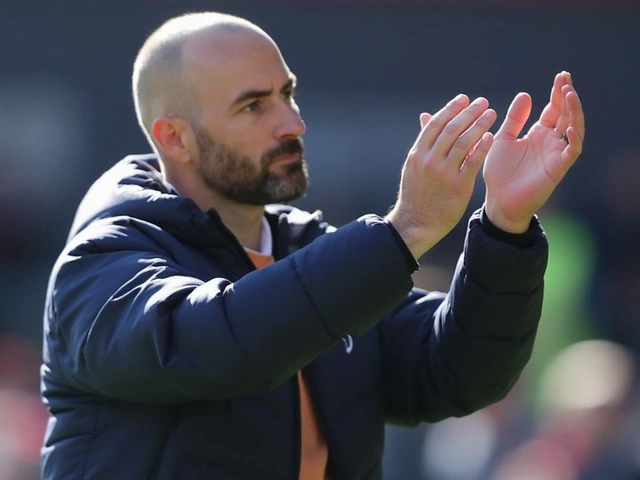JD Vance's Political Emergence: A Tale of Self-Made Success or Privileged Prosperity?
JD Vance's ascension as Donald Trump's chosen running mate is a story deeply rooted in the American tradition of self-made success narratives. His memoir, 'Hillbilly Elegy,' offers a first-person account of his rise from a troubled childhood in the Appalachian region to achieving success as a Yale-educated lawyer and a venture capitalist. Ostensibly, Vance embodies the quintessential American dream, a figure molded by personal effort and resilience. But beneath the surface, this narrative perpetuates a myth that often overlooks the important role of inherited wealth and social privileges in shaping one's success.
The Enduring Appeal of Bootstrap Narratives
The concept of the 'self-made man' has long been embedded in American culture. From the Horatio Alger stories of rags-to-riches heroes, to the pioneering spirit of Laura Ingalls Wilder, and the rugged individualism glorified by Ayn Rand, the bootstrap narrative has captivated American imaginations for generations. These stories suggest that success is the direct result of one's hard work and perseverance, dismissing or minimizing the impact of existing social advantages or family legacy.
Vance's narrative fits seamlessly into this tradition. In 'Hillbilly Elegy,' he vividly recounts the adversities he faced growing up and the seemingly insurmountable obstacles that he overcame through sheer determination. However, this story glosses over the complexities of social mobility and the nuanced reality that many who strive just as hard do not achieve the same accolades or wealth.
Deconstructing the Myth: The Role of Privilege
Critics like Alissa Quart argue that these bootstrap narratives serve as a smokescreen, distracting from the profound structural issues facing working-class communities. By focusing on individual achievements, we risk ignoring systemic problems such as inadequate access to education, healthcare disparities, and the lack of social safety nets. Moreover, the celebration of stories like Vance's can implicitly suggest that those who remain in poverty simply aren't trying hard enough, an idea that fails to account for the myriad factors beyond personal control that can impede success.
In Vance's case, while his personal story is indeed one of triumph over adversity, it is also important to acknowledge the societal privileges and opportunities that facilitated his rise. For instance, Vance's enlistment in the Marine Corps provided him with benefits such as financial stability and educational opportunities that were instrumental in shaping his career trajectory. These advantages are not universally available, making Vance's success less of a blueprint and more of an exception.
Progressive Praise and America's Cultural Fetish
Interestingly, Vance's 'Hillbilly Elegy' has not only been embraced by conservative circles but has also found acclaim among progressive critics. This might seem paradoxical, given the stark ideological differences, but it underscores a broader American obsession with individual success stories. The allure of a person pulling themselves up by their own bootstraps resonates across the political spectrum, reflecting a cultural fetishization of self-sufficiency and personal triumph.
However, this fixation can be problematic. It risks creating a one-dimensional understanding of success that valorizes personal effort while devaluing communal support and policy reform. Quart's critique highlights the need for a more inclusive and honest conversation about the various elements that contribute to personal success, recognizing that it is often a combination of individual effort and societal support rather than one or the other.
The Danger of Simplifying Success
The ramifications of idolizing figures like JD Vance extend beyond individual admiration and affect broader societal attitudes. By perpetuating the myth that success is purely a product of personal grit, there is a danger of stigmatizing those who do not achieve similar successes. The implication that poverty is a result of personal failings rather than systemic barriers is harmful and diminishes the call for meaningful policy interventions to address socioeconomic disparities.
This narrative can also influence policy decisions, leading to the implementation of initiatives that emphasize personal responsibility while neglecting the need for structural support. For instance, policies that prioritize job training and self-improvement may be beneficial, but they fall short of addressing the broader economic and social inequalities that hinder many from advancing.
A Call for a Broader Perspective
In analyzing JD Vance's rise and the reception of his memoir, it is clear that America's love affair with bootstrap narratives is both deep-rooted and complex. While personal stories of triumph provide inspiration, they should not obscure the acknowledgment of systemic factors that enable or obstruct such achievements. To foster a more equitable society, it is essential to move beyond glorifying individual successes and to address the broader context in which these stories unfold.
This means advocating for policies that provide equitable access to education, healthcare, and economic opportunities, ensuring that the American dream is attainable for all, not just a privileged few. It requires a shift in cultural narratives to value communal effort, recognizing that while individual determination is vital, so too is the role of collective support and systemic change.
Conclusion
JD Vance's story, as captivating as it is, must be understood within the larger framework of America's obsession with bootstrap narratives. It serves as a reminder that while personal effort can indeed lead to remarkable achievements, it is never the whole story. By critically examining these narratives and advocating for a more inclusive understanding of success, we can work towards a society that offers genuine opportunities for all its members. This shift in perspective is not just a matter of fairness, but a crucial step towards addressing the deep-rooted inequalities that persist in our society.










Write a comment